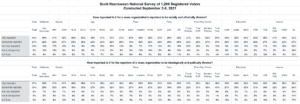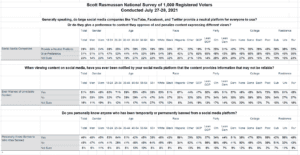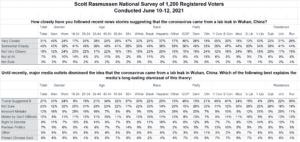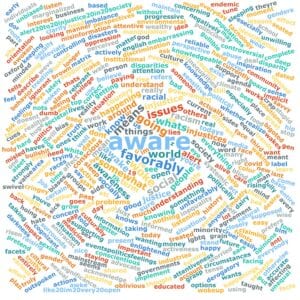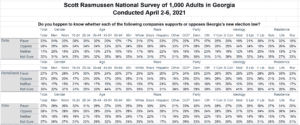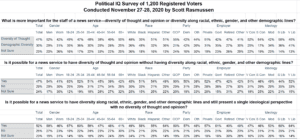Currently, most news organizations require journalists to have a college degree. However, 56% of voters believe it would be a good idea for news organizations to try something different: hire high school graduates and train them to be reporters. A Scott Rasmussen national survey found that just 21% disagree and 23% are not sure.
Sixty percent (60%) of Democrats think hiring high school graduates would be a good idea. So do 56% of Republicans and 50% of Independent voters.
The concept was suggested recently in a post by Ed Morrissey.
SIGN UP to receive Scott’s free email newsletter.
CHECK OUT Scott’s latest polls.
Note: Neither Scott Rasmussen, ScottRasmussen.com, nor RMG Research, Inc. have any affiliation with Rasmussen Reports. While Scott Rasmussen founded that firm, he left more than seven years ago and has had no involvement since that time.
Question:
Currently, most news organizations require journalists to have a college degree. Would it be a good idea for news organizations to hire high school graduates and train them to be reporters?
56% Yes
21% No
23% Not sure
Methodology
The survey of 1,200 Registered Voters was conducted online by Scott Rasmussen on October 14-16, 2021. Field work for the survey was conducted by RMG Research, Inc. Certain quotas were applied, and the sample was lightly weighted by geography, gender, age, race, education, internet usage, and political party to reasonably reflect the nation’s population of Registered Voters. Other variables were reviewed to ensure that the final sample is representative of that population.





